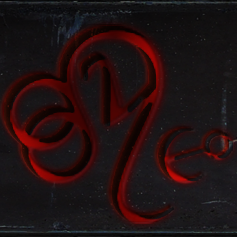Forum Replies Created
-
AuthorPosts
-
April 3, 2016 at 1:57 pm #4470
Yes, I seek the glory and divine wonder of thine own true self!!!
-
April 3, 2016 at 10:32 am #4459
Please someone, I need a hint or something. It appears that I am quite blinded to the light. Thank you. maryellison911@netzero.net
-
April 2, 2016 at 1:39 pm #4392
I received no notification.
-
April 1, 2016 at 10:07 pm #4347
What am I not seeing? Have I always been so blind?
-
This reply was modified 9 years, 10 months ago by
 Mary Pavlovsky.
Mary Pavlovsky.
-
This reply was modified 9 years, 10 months ago by
-
April 1, 2016 at 11:14 am #4261
Thanks Ken!
-
April 1, 2016 at 11:06 am #4257
Yes, I’m having trouble even finding it. I guess I must not be worthy.
-
April 1, 2016 at 10:50 am #4255
The “Tickets” button has been inactive since I logged on this morning. I will try again later. Spasiba Adrewshka.
-
April 1, 2016 at 9:51 am #4248
@daela
The anchor is first seen in the Masonic third degree lecture, where we are taught that it is a symbol of a well-grounded hope. As the anchor was often a seaman’s last resort in stormy weather, it was frequently connected with hope. Being made of a solid body, the anchor was also identified with firmness, solidity, tranquility and faithfulness. The anchor remains firm and steady amidst the stormy waters, symbolizing the stable part of a human being, that quality which enables us to keep a clear mind amid the confusion of sensation, emotion and the general “storms” of life. Therefore the anchor keeps us steady in the storms of temptation, affliction, and persecution. Indeed St. Paul mentions that “Which hope we have as an anchor of the soul, both sure and steadfast” (Hebrews 6:19). Christ is sometimes referred to as the anchor in the sea of life. This usage in Christianity can also be seen in the usage of the anchor in pictures of Saints, including St. Clement of Rome, St. Nicholas of Myra – patron saint of sailors, and John of Nepomucene – patron saint of confessors. -
April 1, 2016 at 9:42 am #4247
I cannot find the questionnaire!!!
-
April 1, 2016 at 8:53 am #4240
It sounds to me like Andrew is in big trouble.
-
March 22, 2016 at 7:49 pm #4079
Please note the similarities to the language/grammar of thee Temple ov Psychick Youth
-
March 21, 2016 at 7:27 pm #4061
In Freemasonry, five is a sacred number, inferior only in importance to three and seven. It is especially significant in the Fellow Craft’s Degree, where five are required to hold a Lodge, and where, in the winding stairs, the five steps are referred to the orders of architecture and the human senses. In the Third Degree we find the reference to the five points of fellowship and their Symbol, the five-pointed star. Geometry, too, which is deemed synonymous with Freemasonry, is called the fifth science; and, in fact, throughout nearly all the Degrees of Freemasonry, we find abundant allusions to five as a sacred and mystical number.
-
March 21, 2016 at 12:51 pm #4056
The Power of Five (also known as The Gatekeepers in the US) is a series of five fantasy and suspense novels, written by English author Anthony Horowitz and published between 2005 and 2012. It is an updated re-imagining of Horowitz’s Pentagram series, which the author had left unfinished in the 1980s. The series is published in the United Kingdom by Walker Books Ltd and in the United States by Scholastic Press. The novels deal heavily in the occult and examples of things such as human sacrifice and blood rituals are major plot elements, such as in the first book, where the protagonist, Matthew Freeman, is hunted by a Cult who want to conduct a blood sacrifice on him to blast open a portal using a combination of nuclear physics and black magic, to unlock another dimension which is holding a group of ancient evil demons captive.
-
March 21, 2016 at 12:50 pm #4055
I can’t tell if I’m barking up the wrong tree or not but there is a Gatekeeper 5 training program at Oracle:
http://education.oracle.com/pls/web_prod-plq-dad/ou_product_category.getPage?p_cat_id=373.
-
March 21, 2016 at 11:36 am #4053
Caucasian from the look of my newsletter.
-
AuthorPosts

